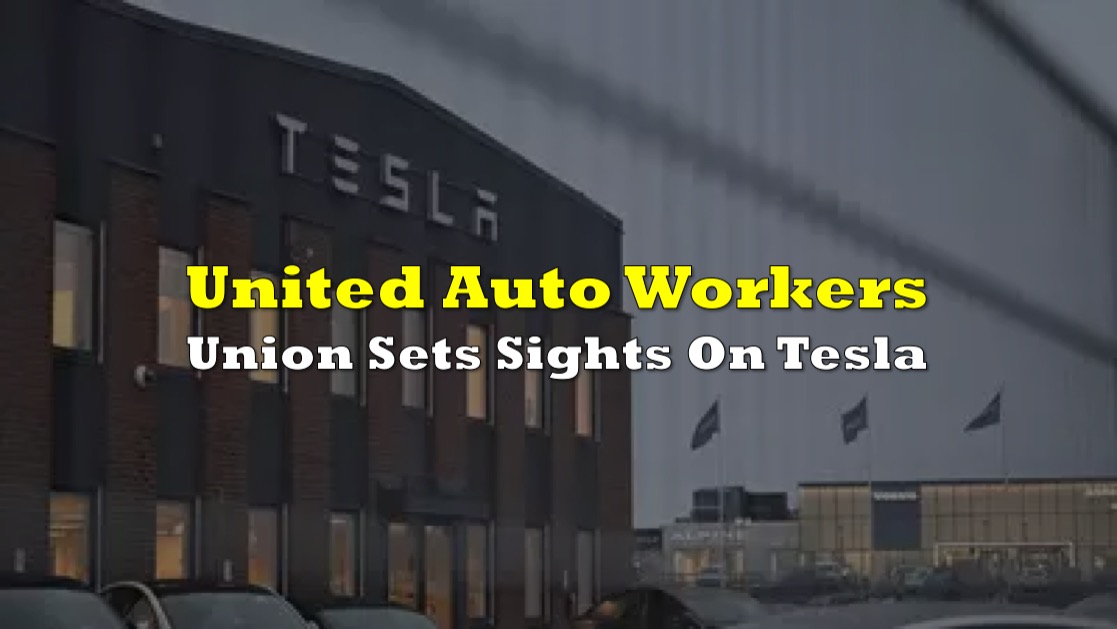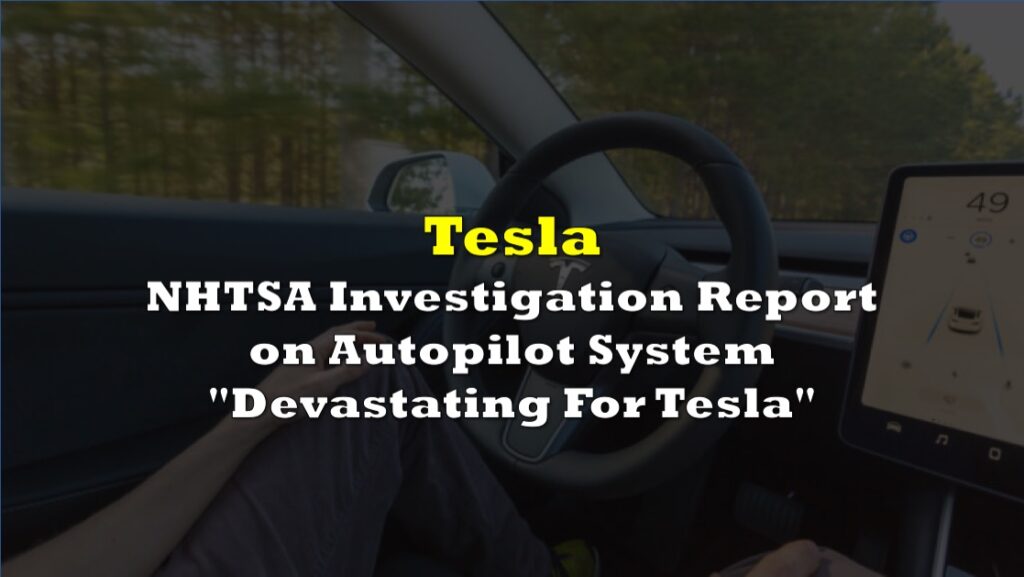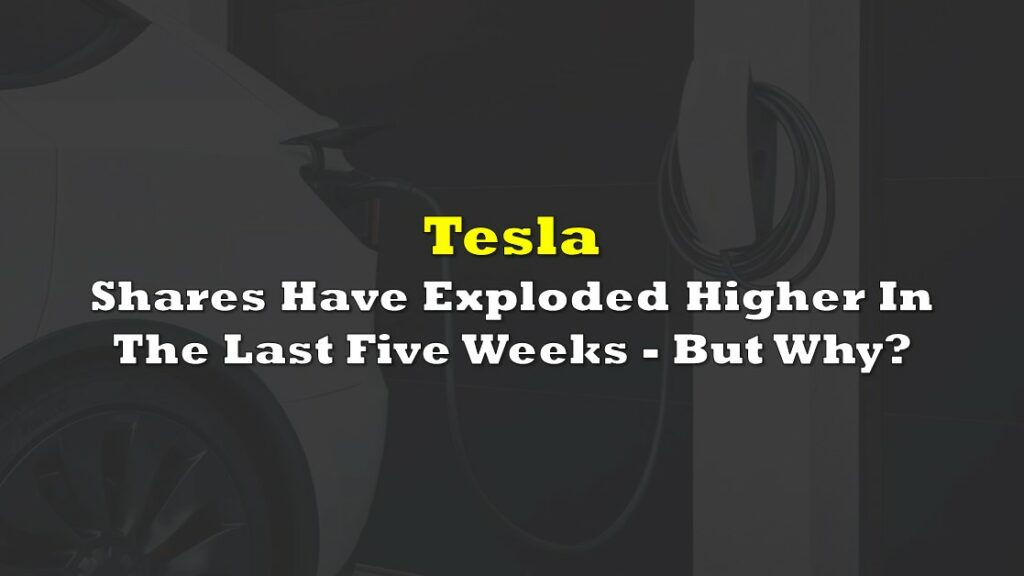United Auto Workers President Shawn Fain, following a self-proclaimed victory over Detroit’s automakers, has set his sights on a new horizon. “One of our biggest goals coming out of this historic contract victory is to organize like we’ve never organized before,” Fain declared on Sunday. “When we return to the bargaining table in 2028, it won’t just be with a Big Three, but with a Big Five or Big Six.”
While the automotive landscape in the United States includes several major car companies such as Toyota and Volkswagen employing non-union workers, one enticing target for the UAW stands out: Tesla. As the world’s most valuable automaker and a leader in electric cars, Tesla boasts tens of thousands of non-union employees across California, Texas, Nevada, and New York.
READ: Can Tesla Afford An Oncoming Union After Slashing Its Margins?
Currently, Tesla’s Fremont, California plant, with around 20,000 workers, has a UAW organizing committee actively discussing the advantages of collective bargaining with their colleagues, according to an anonymous source familiar with the efforts. The UAW has expressed a commitment to provide the necessary resources for this campaign. However, the union declined to comment on its spending plans.
There's a UAW organizing committee at Tesla’s 20,000-worker factory in Fremont, California.
— More Perfect Union (@MorePerfectUS) October 30, 2023
And they're talking to coworkers about the benefits of forming a union.
This comes as the @UAW is winning big. After announcing a huge agreement with Ford, union president Shawn Fain… pic.twitter.com/HxnhedRyBQ
Unionizing the electric vehicle giant would not only expand the UAW’s membership but also enable the union to assert its influence as the industry transitions toward a battery-powered future. Despite the formidable challenge, Fain remains undeterred, aiming to leverage his recent successes in Detroit to showcase the effectiveness of his unconventional tactics and energy.
Fain managed to secure record-setting wage gains, bolstered 401(k) retirement benefits, and other concessions in negotiations with Ford, GM, and Stellantis. “We’ve had thousands of non-union autoworkers reaching out and wanting to join our movement,” Fain emphasized, referring to Tesla, Toyota, and Honda workers as “UAW members of the future.”
Some current UAW members are already enthusiastic about the prospect of taking on Tesla. John Jake Kincaid, a Stellantis employee in Michigan, voiced his support, stating, “Go out west to California? Absolutely, I would go. Show them our strength.”
Nonetheless, negotiating contracts with established union relationships presents a distinct challenge compared to starting from scratch, especially since some key figures from Tesla’s earlier unionization effort are no longer with the company.
The history of the UAW at the Fremont plant predates Tesla’s ownership. For approximately 25 years, Toyota and GM jointly operated the facility as a union shop. However, GM’s withdrawal in 2009, due to bankruptcy, and Toyota’s closure in 2010 left the union out of the picture. The talk of unionization resurfaced in 2016 when a former production worker, Jose Moran, reached out to the UAW.
Moran’s efforts garnered opposition from Tesla CEO Elon Musk, who actively campaigned against the union drive, employing both legal and illegal tactics. The campaign lost momentum and faded into the background in the following years.
The recent five-year period has brought both opportunities and challenges for a renewed union drive at Tesla. The UAW now boasts new leadership, although past corruption scandals and plant closures when the union represented workers have raised concerns among some. On the bright side, the sentiment toward unions has significantly improved, with a majority of Americans now expressing approval.
Under the new tentative agreements the average all-in hourly compensation for @UAW autoworkers, meaning benefits plus pay, is estimated at $88-89/hr.
— More Perfect Union (@MorePerfectUS) October 30, 2023
At Tesla that number is just $45/hr.
That's the difference a union can make. pic.twitter.com/nHzpAeMxxF
The past few years have witnessed increased efforts to organize at previously union-free companies, including Amazon, Apple, and Starbucks. Factors like inflation, poor working conditions, and growing income inequality have fueled the desire for unionization among workers.
Fain’s vision extends beyond Tesla, aiming to ensure that auto jobs across the nation provide better wages and conditions. He has criticized Tesla for offering what he considers “pitiful” pay, highlighting issues like racial discrimination at its Fremont plant.
Comparing compensation between Tesla and the Detroit automakers is complex, given variations in benefits. The Detroit automakers offer generous health-care plans, while Tesla provides restricted stock units and an employee stock purchase plan. Musk’s reluctance to embrace organized labor remains consistent.
Tesla workers are making 1/4 of what the Big 3 manufacturers are paying. UAW’s phone probably ringing off the hook to get Tesla workers unionized.
— Prestige Worldwide 🇨🇦 (@DobackHuffInc) October 30, 2023
Wen Strike???$Tsla pic.twitter.com/c0zRgAl9lV
In February, Tesla terminated multiple employees at its Buffalo, New York plant following the announcement of a unionization campaign with Workers United, unaffiliated with the UAW. The NLRB is investigating the union’s claims of retaliatory firings, which Tesla denies.
Despite the challenges, Fain and the UAW continue to pursue their goal with determination. As Seth Harris, a professor at Northeastern University and former deputy director at the National Economic Council, observes, “The UAW is showing itself to be a militant, well-organized force.”
Information for this briefing was found via Bloomberg and the sources mentioned. The author has no securities or affiliations related to this organization. Not a recommendation to buy or sell. Always do additional research and consult a professional before purchasing a security. The author holds no licenses.









